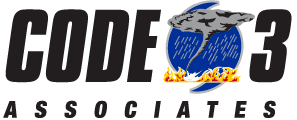Equine Foot and Leg Care for the Investigator
March 27, 2024 – 9:00 am to 11:00 am (Mountain Time) – Virtual
Any officer in an area where there is a horse population has probably gotten the call about “horses standing in the mud,” or “the horse who can’t walk,” or the “donkey who has slipper hooves.” Many welfare issues may arise from hoof or leg care neglect and injury, especially, among horses in backyard and urban environments.
Join us for a look at some common complaints and possible solutions. The course covers hoof anatomy and normal physiology so you can communicate more precisely with the owner, veterinarian, and /or farrier. We will take you through the expected standards of care, consequences of poor care, and proactive, preventative measures officers may try to improve equine welfare. We will also discuss when to get veterinary assistance.
Equine foot and leg care is an essential aspect of equine welfare and requires the involvement of law enforcement officers, veterinarians, and farriers to ensure the well-being of horses. Understanding equine hoof anatomy, normal physiology, and typical hoof and leg care issues is crucial for addressing welfare concerns and working effectively with horse owners.
Topics include:
- Equine Anatomy and Normal Physiology:
-
- Introduction of the horse’s foot anatomy, including the hoof, pastern, fetlock, cannon bone, and knee.
- Explain the essential functions of these structures, such as weight-bearing and locomotion.
- Discuss the importance of proper conformation and balanced growth for healthy legs and hooves.
- Common Complaints and Welfare Issues:
-
- Address common complaints officers may encounter, such as horses standing in mud or experiencing lameness.
- Highlight potential welfare issues resulting from neglect or injury to the hooves and legs, including laminitis, abscesses, and overgrown hooves.
- Standards of Care:
-
- Regular care and maintenance required for equine hooves and legs, which include regular hoof trimming or shoeing, maintaining a clean and dry environment, and providing appropriate nutrition.
- Emphasize the importance of adhering to these standards to prevent issues.
- Consequences of Poor Care:
-
- The negative consequences of neglecting equine foot and leg care include pain, lameness, and long-term damage to the horse’s health and soundness.
- Examples and photos of severe cases to illustrate the impact of poor care on horse welfare.
- Case Studies and more
_________________________________________________________________________________________
Tuition, Registration & Payment
Registration & payment should be received by March 27, 2024.
Training participants will be assessed a 25% fee on any cancellation made two weeks or less before the class date, no refunds will be issued if the cancellation is made 0-5 days before the training. Exceptions may be made for extenuating circumstances, and/or credits could be applied to future Code 3 training. Don’t hesitate to get in touch with us regarding all cancellations.
This is a virtual class, and refunds will not be provided for any internet or technology-related issues. If issues arise, the student may be allowed to attend another scheduled training session to complete any instruction missed due to connectivity issues.
Please email us, at info@code3associates.org with any questions.
Details on Virtual Class
- The virtual class is taken via computer, allowing students to interact with each other and the instructors.
- A computer with a webcam, microphone, and reliable internet access are required for attendance.
- 100% attendance is required, with participation options available through the student’s microphone and/or type-written communications.
- Class materials will be emailed in advance in pdf form – students are expected to download the pdf before the start of class.
- The class will be held on March 27, 2024, from 9:00 am to 11:00 am. MOUNTAIN TIME

Flyer

Date & Time

Location
n/a
Virtual Course,
Don't miss out on this class! Although online registration has ended, it may not be too late to join. We encourage you to email info@code3associates.org to inquire about registering. We look forward to helping you take the next step towards advancing your skills and training.

